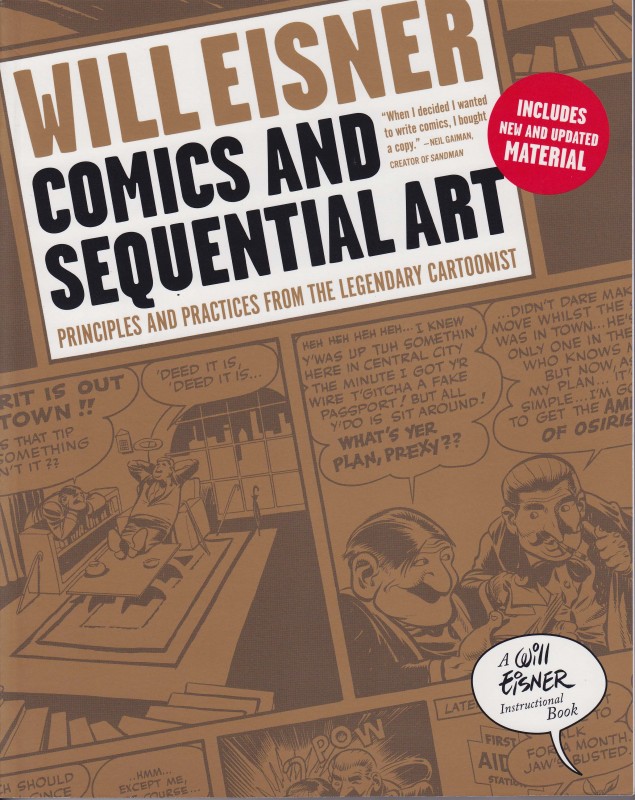It’s Master Comics Creator Will Eisner’s Birthday, Here’s What You Need to Read
Posted on March 6, 2023
by Eric S
Who would you put on the Mount Rushmore of comics? Maybe Stan Lee or Jack Kirby immediately come to mind, but what about another cartoonist whose work expanded well beyond superheroes? Known for his stories that defied genre conventions, challenged the typical layout of comic book pages, and brought much-needed humanity and social commentary to the art form, Will Eisner remains a favorite among new and old readers alike. Celebrate his birthday this month by picking up one of these great reads at your local Library!
For more great comics, make sure to check out the offerings of your local Library branch as well as the hoopla app.
The Best of The Spirit
Skip the 2008 film and go right to the source with this one. When detective Denny Colt is presumed dead, he takes up the mantle of the masked vigilante known as The Spirit. Alongside his cringingly-problematic sidekick Ebony White, The Spirit dishes out justice in his home of Central City as well as around the globe. The Spirit represents an interesting time in Eisner’s career, in which he was still very much part of the grueling world of syndicated comic strips, but also pushing the boundaries of the art form (check out how he incorporated text into his page designs). While The Spirit is essential reading for fans of noir and pulp stories, the comic is still a fascinating exercise in genre exploration, often veering into horror, romance, and comedy.
A Contract with God and Other Tenement Stories
Widely considered to be one of the very first “graphic novels” (a rather broad term typically applied to longer works that set them apart from shorter monthly comic books), A Contract with God marked a huge step forward for graphic storytelling. With four distinct stories about the poor Jewish-American characters who live in a tenement in New York, A Contract with God is a masterful exploration of disillusionment. Giving as much attention to the text and page layout as he does to the illustration, this book certainly challenges many preconceived notions of not only how a comic is supposed to look, but what kind of stories it is allowed to tell.

Comics and Sequential Art
A distillation of the course that Eisner taught at New York’s School of Visual Arts, Comics and Sequential Art is one of the preeminent texts on graphic storytelling. If your quest into comics began with Stan Lee and John Buscema’s How to Draw Comics the Marvel Way, then Eisner provides a deeper (yet still accessible) breakdown of page layouts, anatomy, movement, pacing, and other major aspects of comics– along with explanations as to why certain techniques work.
Fagin the Jew
One of Eisner’s last works, Fagin the Jew puts an interesting spin on a classic, telling the story of Oliver Twist from Fagin’s perspective. As demonstrated in many other Eisner comics, Fagin the Jew is deeply concerned with Jewish identity and isn’t afraid to call out one of the great works of the literary canon for its simplistic stereotypes. Framed as a discussion between Fagin and Charles Dickens on the night before Fagin’s execution, Eisner imparts humanity and complexity into a character who is easy to dismiss. With a style that’s as detailed as it is spontaneous, Fagin the Jew is a great visual and thematic companion piece to A Contract with God.
Will Eisner’s New York: The Big City
This collection contains four graphic novels released between 1986 and 1992 (New York, The Building, City People Notebook, and Invisible People), each with their own unique take on the city that never sleeps. A site of wild extremes, few artists have captured New York’s contradictions and perplexities quite like Will Eisner. To say Eisner has a love/hate relationship with New York would be a huge oversimplification– Eisner’s tales show a city that’s as magical as it is disgusting, as inspirational as it is heartbreaking. With someplace as overwhelming as New York, it’s the small, human moments that Eisner finds to be the most powerful.
The Dreamer
A favorite of comic creators (both wide-eyed and exceedingly jaded) and fans of comics’ Golden Era, The Dreamer is a somewhat autobiographical account of Eisner’s early days in the business. A comparatively short read at under 60 pages, Eisner nonetheless manages to paint a rather fascinating portrait of life as a cartoonist for a major publishing house– one filled with mafia encounters, copyright drama, and interactions with some of the greatest artists in the history of comics. Hopeful without coming across as too naive, Eisner continues to do what he does best: find the humor and humanity in normal people who are struggling to make it.
Did you like this blog post? Keep up to date with all of our posts by subscribing to the Library’s newsletters!
Keep your reading list updated with our book lists. Our staff love to read and they’ll give you the scoop on new tv-series inspired titles, hobbies, educational resources, pop culture, current events, and more!
Looking for more great titles? Get personalized recommendations from our librarians with this simple form.

